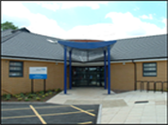Khan Medical Practice
Pinfold Health Centre, Field Road, Bloxwich, Walsall WS3 3JP
Telephone: 01922 775 194
We're open

Let’s Walk Armed Forces Veteran Friendly Accredited GP Practice #AskAboutAsthma 2024 helping children and young people to live their best lives Walsall Holiday Activity and Food (HAF) Programme Cancer Awareness drop in session at The Hive Cases of whooping cough are continuing to rise. If you are pregnant… Over 40? You need to know your blood pressure Are you looking after an elderly parent or relative? NHS launches catch up campaign for missed MMR vaccines Early Help resources to support children and families who are struggling Whats on at your local Family Hub January – March 2024 0 – 5 years Let’s Get Walsall Gamefit GET WINTER STRONG » Get your FLU and COVID-19 vaccination What’s on at our Walsall Family Hubs Black Country Women’s Aid Infant Feeding Support Service Pop-up vaccination clinics Measles cases are rising in England Pharmacy Opening times Know where to go to get the right care Do I look like I care? Abdominal Aortic Aneurysm Screening Do you suffer with any of these symptoms since having COVID-19? Thinking about opioid treatment for pain The bowel cancer screening kit can save your life First Contact Physiotherapy NEW Walsall Respiratory Syncytial Virus (RSV) Paediatric Hub
Thinking about opioid treatment for pain
Pain is complicated and influenced by many factors, including:
- how you are feeling in general
- your previous experience of pain
- your understanding of why you have pain
- any worries you have about your pain
- how you deal with your pain
- how your pain affects your life
Pain that doesn’t get better tends to cause distress, tiredness and irritability. Your sleep may also be affected and it can cause problems with daytime activities and moving around. Because of this, it can also affect relationships with friends and family.
You should discuss, with your doctor, what you expect from the treatment. It is easier to treat pain after surgery or an injury with painkiller medicines, however it is rarely possible to relieve long-term pain completely by using painkillers. The aim of treatment is to reduce your pain enough to help you get on with your life. In trials most medicines for long-term pain only benefit around one in every four or five people and on average only provide a 30 % reduction in pain. Medicines work best if you combine them with other ways of managing symptoms such as regular activity and exercise, and doing things that are satisfying or enjoyable, such as work or study, and social activities. Setting goals to help improve your life is an important way to see if these drugs are helping.
Why don’t my painkillers work? is a commonly asked question, and often one without any easy answers. Long-term pain arises through many different mechanisms, and most drugs only work for one of these. Some pains do not seem to respond to any painkilling medicines. You can get used to painkillers, including opioids, so that you need more and more to have the same effect.: This is called building up tolerance. However, we know that high doses of opioid medicines taken for long periods are unlikely to give better pain relief and are associated with a number of problematic adverse effects.
Opening Times
- Monday
08:00am to 06:30pm
6:30pm to 9:00pm ourNetExtended hours - Tuesday
08:00am to 06:30pm
6:30pm to 9:00pm ourNetExtended hours - Wednesday
08:00am to 06:30pm
6:30pm to 9:00pm ourNetExtended hours - Thursday
08:00am to 06:30pm
6:30pm to 9:00pm ourNetExtended hours - Friday
08:00am to 06:30pm
from 1:00pm to 6:30pm ourNet HUB contact number: 01922 501 999 - Saturday
09:00am to 05:00pm
Out of Hours - ourNet HUB contact number: 01922 501 999 - Sunday
CLOSED





